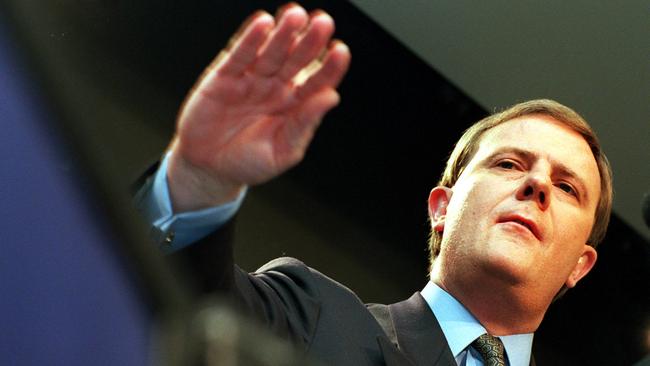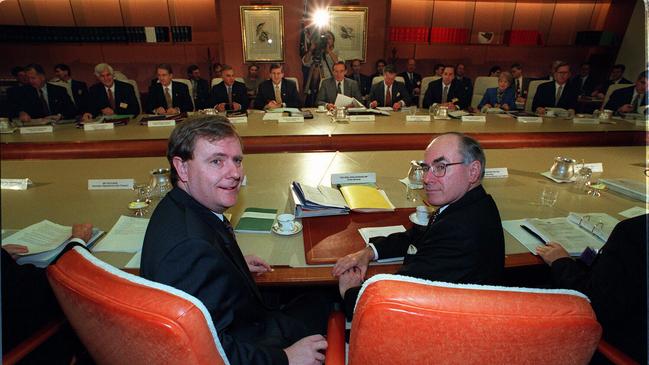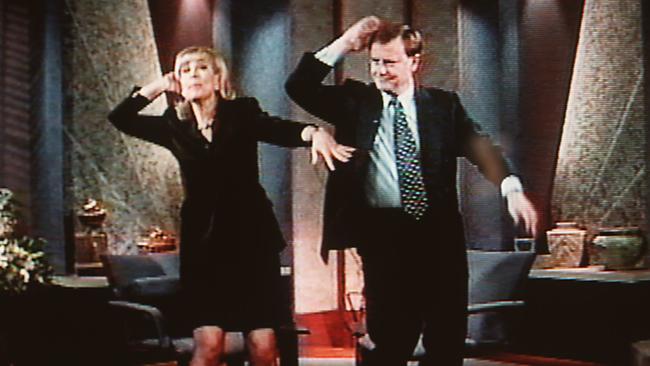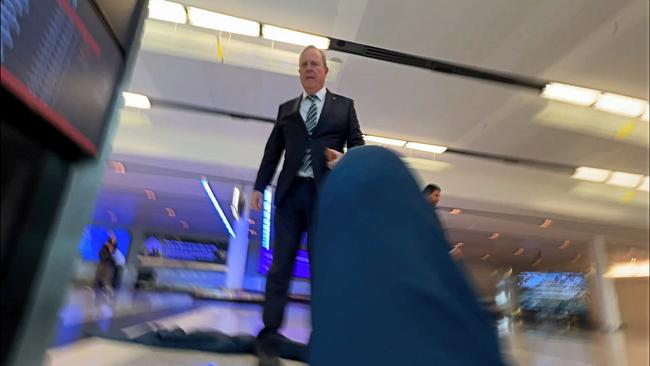Peter Costello’s brilliant career has come to a sad end with his brain snap at Canberra Airport


In the Canberra press gallery I have known Costello from the time he: entered parliament in 1990; became a rising star; was deputy leader of the Liberal Party “dream team”, which crashed and burned; became deputy leader and treasurer in the Howard government of 1996, roles he held for more than 10 years in government; and beyond, as chairman of the Future Fund and Nine Entertainment.
In all of that time – including years of speculation that he would overthrow John Howard as prime minister, later that he would become opposition leader against Kevin Rudd in 2007, and, even, during the time he had inadvertently contributed to a Labor senator’s suicide attempt – never have I ever known Costello to be personally aggressive.

Indeed, Costello’s failure to take over from Alexander Downer as opposition leader, after a brain fade on indigenous affairs in Western Australia, and not taking the final step against Howard to “blast him out of the PM’s chair”, even when Howard had minority support in cabinet before the 2007 election defeat, were put down to a lack of aggression.
Sure, he could get grumpy with journalists – an irony given his ascension to the chair of his traditional “Fairfax” critics – and could direct staff to tear strips off political commentators who crossed him. But, the personal aggression against a working journalist, doing his job and getting into the face of a public figure under pressure was not the Costello of the decades before.

The footage from Canberra Airport last Thursday clearly showed contact on camera and a callous, smirking indifference to someone who had at the very best “fallen over an advertising placard”.
Apart from anything else, Costello, like his brother Reverend Tim Costello, is a man of Christian faith, long imbued with values that stood him well as he helped govern the country and headed Australia’s mission to help Indonesia after the dreadful tsunami.
There is no doubt that Costello behaved reprehensibly to a working journalist – his resignation is evidence of this.
The journalist was doing no more than what hundreds of reporters under Costello’s umbrella at Nine Entertainment, which was under fire for a collection of debacles, should have been doing. Where was A Current Affair and those who published his clearly dubious explanation?
Costello’s former colleagues, who worked with him as one of Australia’s most successful treasurers and during his post-political career, couldn’t believe what he had done. But, his reaction under extreme pressure, without regard to how it would be viewed (even if he didn’t realise the journalist had a video camera) and with a complacency about the repercussions and a generational blindness forced his resignation.

It was also a demonstration of how the media has changed. Costello’s attitude – if not his actions – would have been overlooked 20 or 25 years ago. Times have changed for the good and bad. Costello is both a villain and victim of changing times. Sadly, a distinguished career will now be marked by a brain snap at an airport.







As a political journalist, and as a person, I have known Peter Costello for more than 30 years.